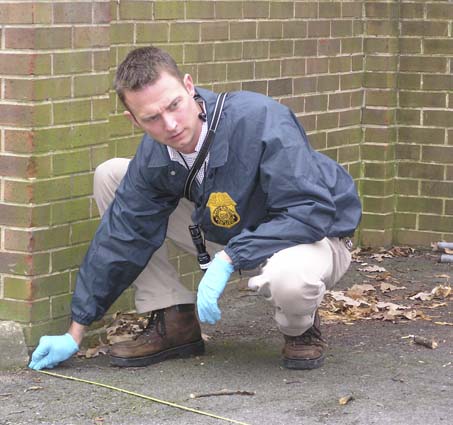
Although popular television shows and films have made great strides in making the public interested in how science can help solve crimes, it is fair to say they are not completely accurate.
The popular television show CSI has its agents going to crime scenes, analyzing evidence in the lab, arresting suspects and even interrogating them. For her Canadian Living article entitled “CSI-TV gets a reality check,” Clare Tattersall interviewed crime scene investigator Joanne Wendell, who said that her job is not as extensive as portrayed on screen. “‘My job is to go to different crime scenes and collect forensic evidence,’ says Wendell. ‘That’s it.’ Once Wendell packages and labels everything, she drops it off at the lab and then it’s up to the detectives to track down the suspects. If an arrest is made and the case goes to court, then Wendell presents the evidence at trial,” wrote Tattersall
Sometimes the terms crime scene investigators (CSIs), criminalists and forensic scientists seemed to be used interchangeably. How they are actually defined may depend on the law enforcement agency they are working for, but let’s try to look at some general classifications.
“A forensic scientist is first a scientist,” states the American Academy of Forensic Sciences (AAFS). “When he applies his scientific knowledge to assist juries, attorneys, and judges in understanding science, he is a forensic scientist.” The AAFS adds that forensic scientists may work in labs and/or go to crime scenes; alternatively they can be professors at universities or colleges. Forensic scientists may also be called to testify in court as an expert witness based on the analysis they performed on evidence.
According to the AAFS, there are at least 11 categories of forensic scientists. One such category is called Criminalistics, thus one can conclude that criminalists are a type of forensic scientist. The AAFS states that criminalists are responsible for analyzing and interpreting physical evidence. “The enormous range of material challenges the ingenuity of the criminalist who examines and identifies hair, fibers, blood, seminal and body fluid stains, alcohol, drugs, paint, glass, botanicals, soil, flammables, and safe insulating material; restores smeared or smudged markings; and identifies firearms and compares bullets, tool markings, and foot prints.”
The AAFS mentions that some forensic scientists may have field investigation as one of their specialties. So does this mean forensic scientists and crime scene investigators are the same thing? Not necessarily.
According to Simon Fraser University’s Dr. Gail S. Anderson, in many cases crime scene investigators start off as police officers. After working on the force for several years, if accepted into the CSI unit, they undergo extensive training “in all aspects of crime scene analysis from photography, fingerprinting and DNA collection to blood spatter pattern analysis…” states Dr. Anderson.
“The CSI is a support person for the investigator in charge of the case,” adds The International Crime Scene Investigators Association (ICISA). “The CSI is responsible for the thorough documentation of the scene(s) and the identification, processing and collection of physical evidence.” Then, generally speaking, the CSI would deliver the evidence they have collected to forensic scientists.
The ICISA says, while it is more common (and probably easier) for a sworn officer with several years experience to become a crime scene investigator, there are some civilians who hold CSI positions as well. For civilians to be considered, they would generally require a degree related to crime scene investigation, such as a science or criminal investigation program. Forensic scientists generally require a minimum of a Bachelor degree in forensic science or biology, chemistry or another natural science.
However, the ICISA says law enforcement agencies vary on what education and experience they require of their forensic scientists and CSIs. If you would like to pursue a profession that combines science with justice, talk to prospective agencies to find out how you can become a member of the team.



